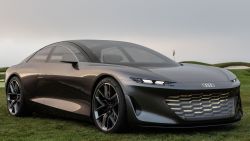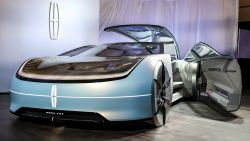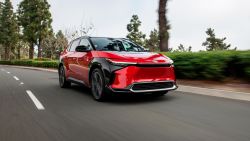Workers at Volkswagen’s only US factory narrowly defeated an effort by the United Auto Workers union to organize the Chattanooga, Tennessee plant.
The vote announced late Friday showed only 48% of the hourly workers voting in favor of union representation, a bit closer than a similar vote five years ago but not enough to win. More than 90% of 1,600 eligible workers took part in the vote.
The vote was a key battle in the effort of the UAW to reverse years of declining members and influence within the US auto industry.
A win for the union would have been historic. Foreign automakers, such as VW and Toyota (TM), own 31 factories and produce nearly half of the cars built in the United States. None of those 31 foreign-owned plants have ever been unionized. Workers there are generally paid less than workers represented by the UAW.
The union represented more than 1 million people at auto assembly plants as recently as the 1980s, but only 155,000 members remain at GM (GM), Ford (F) and Fiat Chrysler (FCAU) today. Plant closings, automation, the shift of production to Mexico, and the rise of foreign companies such as Volkswagen and the Asian automakers have taken their toll.
The UAW desperately needs to break through at a so-called transplant factory.
“It is important for the UAW to nab one of the plants to rebuild membership as well as clout,” said Michelle Krebs, senior analyst with Cox Automotive.
The UAW says the average worker at the Volkswagen plant makes about $21 an hour, compared to $28 an hour at a unionized auto plant.
“We are among the best paying employers in the region,” the company said in a statement.
The VW plant in Chattanooga was one of the UAW’s better opportunities to win a vote at a transplant factory. A member of the German autoworkers union sits on VW’s board of directors. More than 100 VW plants worldwide employ union-represented workers — everywhere but in China and at the Chattanooga plant. But union opponents at the plant and the the city campaigned hard against union representation, arguing union representation was bad for Volkswagen and the plant’s workers.
Five years ago, the company was relatively neutral during the vote, and the union went so far as to commend management for the way the vote was conducted. This time the union had no such praise for VW, saying the pressure put on workers by management demonstrated the need to change the nation’s labor laws.
“Our labor laws are broken,” said union spokesman Brian Rothenberg. “Workers should not have to endure threats and intimidation in order to obtain the right to collectively bargain. The law doesn’t serve workers, it caters to clever lawyers who are able to manipulate the [election] process.”
The company’s statement said it would respect the decision of the employees who rejected the union.
“Our employees have spoken,” it said.
The vote comes as the UAW faces tough negotiations with General Motors, Ford (F) and Fiat Chrysler (FCAU) on a new round of labor deals later this year.
Jobs will be a big issue. GM, for example, is closing four American plants. Looming in the background are competitive pressures from the nonunion transplant factories.
Krebs said the gap between unionized and nonunion plants is shrinking. A decade ago, the union made concessions to help keep GM, Ford and Chrysler alive in the face of lower-cost competition from foreign automakers. And it has never fully recovered. Gaining a foothold in a transplant factory would give the UAW an edge.
“If all the plants were UAW represented, they’d have more power over the automakers,” Krebs said. But that hasn’t been the case for the US auto industry since the early 1980s when the transplants first started opening.

























